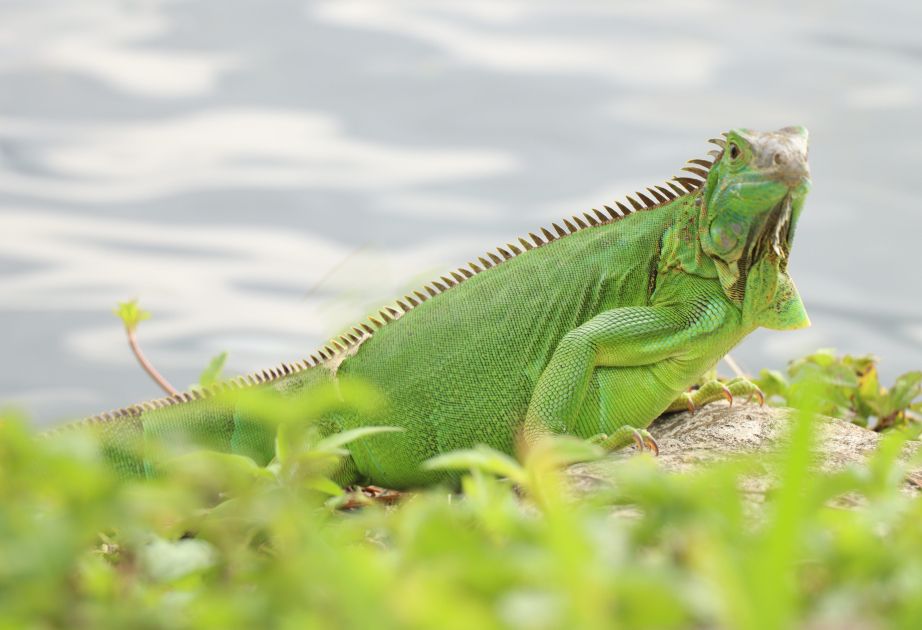Taiwan plans to kill up to 120,000 Tiguan due to negative impact on agriculture

By Alimat Aliyeva
Taiwan plans to cull up to 120,000 iguanas in an effort to control the population of these reptiles, which have caused significant damage to the island’s agricultural sector. Supporters of the initiative are advocating for humane methods to reduce the numbers of these invasive animals, Azernews reports.
Experts estimate that around 200,000 green iguanas currently inhabit the southern and central regions of Taiwan, areas that are heavily dependent on agriculture. The iguanas have become a major threat, damaging crops and infrastructure.
Last year, specially trained hunting teams successfully killed about 70,000 iguanas, offering a reward of up to $15 for each one. Local authorities are now calling on the public to assist in locating iguana nests and are recommending fishing spears as the most humane method for killing the animals.
"Many people bought them as cute pets, not realizing how large and long-lived they would become, and eventually released them into the wild, where they adapted well to the Taiwanese environment," said Li Chi-ya from the agricultural department of Pingdong South County. "This allowed them to reproduce rapidly, forcing us to take action to restore the natural balance."
In Taiwan, green iguanas have no natural predators, allowing them to thrive in hard-to-reach areas, primarily forests and the outskirts of cities. Males can grow up to 6.6 feet in length, weigh up to 5 kilograms, and live for up to 20 years. Females are capable of laying up to 80 eggs at a time, further exacerbating the population problem.
The iguana culling has sparked debate on how to balance environmental conservation with agricultural needs. While some animal rights groups argue for more humane alternatives, others point to the long-term ecological damage caused by the iguana population's unchecked growth. The situation in Taiwan is an example of how invasive species—whether intentionally or unintentionally introduced—can wreak havoc on local ecosystems, necessitating drastic measures to protect native flora and fauna. Additionally, this culling could have wider implications for biodiversity management in other regions facing similar challenges with invasive species. The use of AI and satellite tracking to monitor iguana movements has even been proposed as a more advanced method to track and control the population, showcasing Taiwan’s commitment to finding innovative solutions.
Here we are to serve you with news right now. It does not cost much, but worth your attention.
Choose to support open, independent, quality journalism and subscribe on a monthly basis.
By subscribing to our online newspaper, you can have full digital access to all news, analysis, and much more.
You can also follow AzerNEWS on Twitter @AzerNewsAz or Facebook @AzerNewsNewspaper
Thank you!
